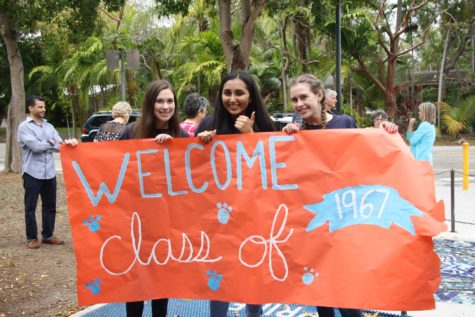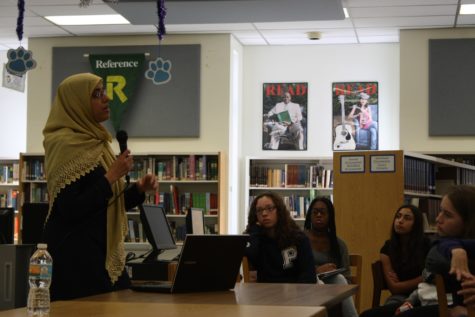STD truck could save lives
April 5, 2014
Hundreds of students running to the basketball courts, skipping class; nothing seems out of the ordinary at a day in Palmetto. However, these kids are not running to their cars to skip their Calculus test or to order their Chipotle before the line is out the door; these 800 kids run to the STD testing van.
Five years ago, a van that tests individuals for sexually transmitted diseases drove onto Palmetto’s basketball court. After hundreds of cups were peed in, 60 percent of the 800 students received a call that changed their lives forever… they carried either chlamydia or gonorrhea.
“Everyone was going crazy,” said Ms. Brislawn, health teacher. “We thought everyone would be embarrassed to pee in a cup and get tested but everyone was running up with their cups of pee.”
Now, Ms. Brislawn wants to bring back that van back, along with an HIV testing van. With such a positive response years ago, she hopes to have both trucks drive back onto the basketball court, ready to test the school’s population for these harmful, yet treatable, diseases. The process proves quite simple: to test for STDs, students trade their urination in a cup for a code specific to them. Five days later, those tested call with their code and receive his or her results. To test for HIV, the students salivate on a q-tip with the results available just 20 minutes later. If results come back positive, the University of Miami Health Department will provide free medication, keeping absolutely everything completely confidential.
“An STD testing truck would be very beneficial for the school,” junior Christian Spillis said. “Students need to be able to seek the proper advice, help and medication.”
Palmetto’s own HIV Peer Educators have been trained by the UM Health Department and will speak to students on April 10, right before prom, on how to stay safe when sexually active and avoid STDs. In addition, Ms. Brislawn has business cards in her room with the UM Health Department’s information, if a student would like to get tested or needs to receive free medical attention. Anybody can stop by room 302 and pick up a card.
“Everyone should know their status,” Ms. Brislawn said. “STDs are like diabetes, you can take care of your body and treat it, but if you don’t take care of yourself, you’re going to die.”
With some STDs being asymptomatic, or symptom-free, like chlamydia, and with Miami-Dade County having the highest number of people with HIV infections in the United States, Brislawn believes the most important thing is to get tested and get immediate help.
“STDs is the gift that keeps on giving,” Ms. Brislawn said. “And giving and giving and giving…”

















